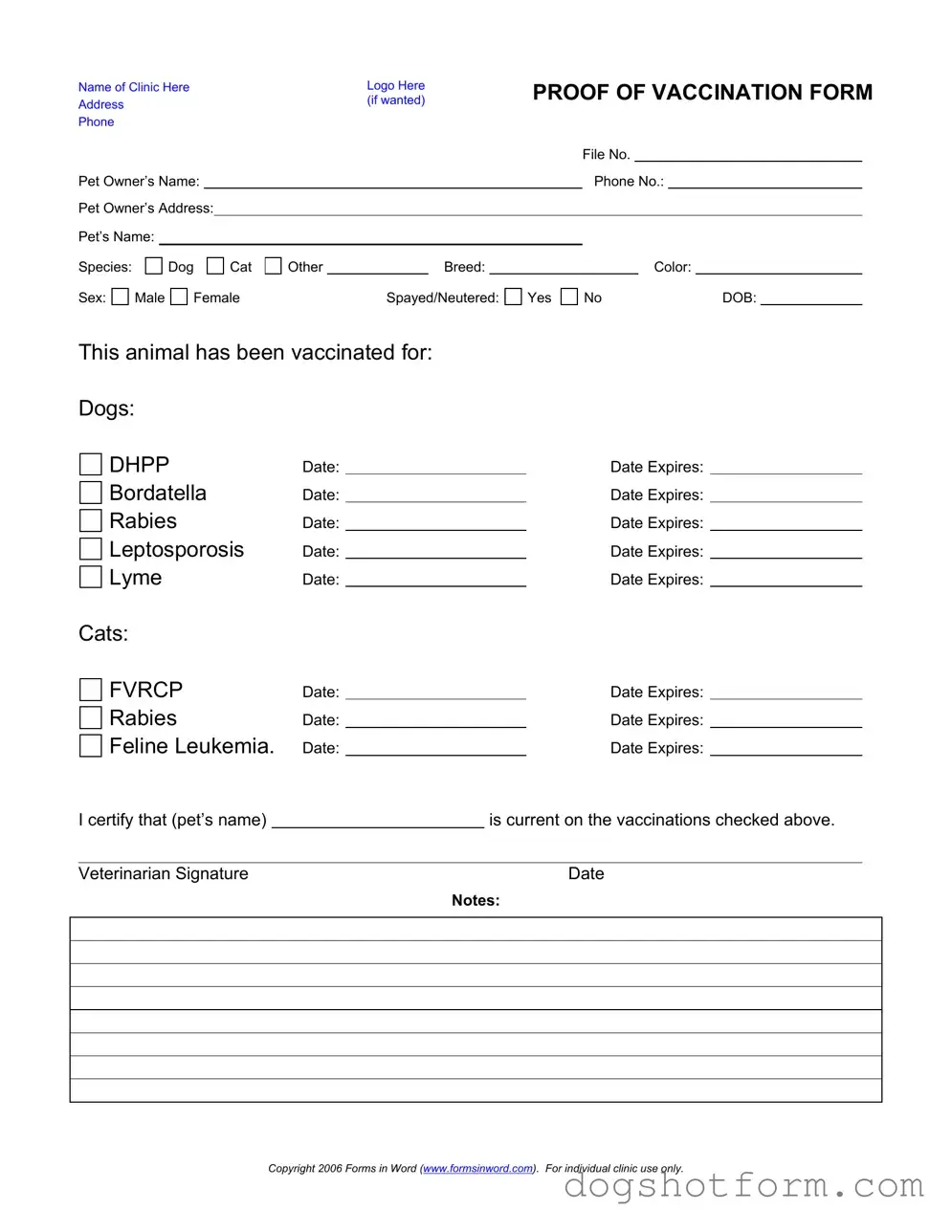The Pet Health Certificate is similar to the Proof of Vaccination Dog form in that it provides a record of a pet's health status and vaccinations. This document is often required for travel, boarding, or adoption. It includes details about the pet's vaccinations, health checks, and any treatments received. Like the Proof of Vaccination form, it must be signed by a licensed veterinarian to be considered valid.
The Rabies Vaccination Certificate serves a specific purpose, focusing solely on the rabies vaccination. This document is crucial for compliance with local laws and regulations. It includes information such as the pet's name, vaccination date, and the veterinarian's signature. Similar to the Proof of Vaccination Dog form, it confirms that the pet has received the rabies vaccine, ensuring the safety of both the pet and the community.
The Health Record is another document that shares similarities with the Proof of Vaccination Dog form. This record provides a comprehensive overview of a pet's medical history, including vaccinations, treatments, and any illnesses. Pet owners often use it to track their pet's health over time. Like the Proof of Vaccination form, it can be essential for new pet owners or when transferring care to a new veterinarian.
The Certificate of Veterinary Inspection (CVI) is required for pets traveling across state lines. It confirms that the pet is healthy and free from contagious diseases. The CVI includes vaccination details and must be signed by a veterinarian. This document, like the Proof of Vaccination Dog form, ensures that pets meet health standards for travel and helps prevent the spread of disease.
The Canine Good Citizen (CGC) Certificate is awarded to dogs that have passed a training program. While it focuses on behavior rather than health, it is often accompanied by vaccination records. Both documents serve to demonstrate a pet's readiness for public interaction. The CGC Certificate enhances a pet's profile, similar to how the Proof of Vaccination Dog form establishes a pet's health credentials.
When dealing with the transaction of recreational vehicles (RVs) in Texas, it is vital to have the appropriate documentation. This is where the Texas RV Bill of Sale form comes into play, serving as an official record of the sale between a buyer and a seller. It is important to ensure that all details are accurately filled in to avoid any complications later on. For further guidance on filling out this essential document, you can visit legalpdf.org.
Lastly, the Microchip Registration form is related to the Proof of Vaccination Dog form in that it helps identify pets. This document includes the pet's microchip number and owner details. While it doesn't focus on vaccinations, it is part of responsible pet ownership. Both documents are essential for ensuring a pet's safety and well-being, providing peace of mind to pet owners.

